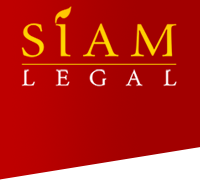Revenue Department Currently Drafting New Foreign Income Tax Law

In September 2024, the Thai Revenue Department announced that it was drafting a new tax law targeting foreign income. This bill, once implemented, will amend the current Thai tax law to align Thailand’s tax system with the concept of “worldwide income” and bring Thailand’s taxation of multinational corporations in line with international standards.
The result will likely raise income taxes for tax residents of Thailand, both citizens and expats, as well as an increase in corporate taxes to prevent companies from shifting assets to countries with lower taxes.
It is important to note that these new amendments are only in the drafting stage at the moment and formal approval by the Cabinet and the Thai parliament is required before they can be enacted.
What is the New Proposed Tax Law in Thailand?
Under this new law, tax residents will need to report any foreign income they earned during the current tax year, even if they did not bring it into the country, and include it in their assessable income. Anyone who resides in Thailand for at least 180 days out of a calendar year (which is the same as the tax year) is considered a tax resident of Thailand for that year.
The director-general of the Thai Revenue Department, Kulaya Tantitemit, explains that the new changes will only impact personal income tax. Corporate income tax or income from mutual funds from overseas will not be affected by these amendments, save for private funds.
Ms. Kulaya states that the new regulation will follow the global principle of “worldwide income” based on residency. This principle states that anyone receiving income must be taxed by the country where the individual is currently residing for the majority of their time.
Under worldwide income guidelines, both Thai citizens and foreign nationals will need to report and pay taxes on their income while in Thailand, regardless of the country they received it from or if it was brought into the country.
How Does This Differ From the Current Tax Law?
On January 1, 2024, a tax rule was introduced that changed the taxation of foreign-sourced income. Presently, under section 41 of the Thailand Revenue Code, Thai nationals and foreigners who have been living in the country for at least 180 days in a single tax year will be taxed on any foreign income they bring into the country, regardless of when it was earned.
Types of assessable income in Thailand include:
- Employment income (such as wages and salaries)
- Proceeds earned from business operations
- Income from business operations of an employer
- Passive income or property-related income (such as interests, dividends, rental income, and goodwill)
The new tax policy proposed by the Thai Revenue Department will mark a significant change to Thailand’s tax law. Unlike the current law, foreigners and locals will be taxed on income they earned from abroad even if they do not bring it into the country.
How This New Thai Tax Law Will Affect Corporations
While the new rule will not include corporate income tax, a global minimum corporate tax rate is also included in the bill being drafted by the Thai Revenue Department. Ms. Kulaya mentioned that this new standard will closely follow the international agreements established by the Organisation for Economic Co-operation and Development (OECD), of which Thailand is a member.
Once the rule is in place, multinational corporations are required to pay a global minimum tax (GMT) rate of 15% regardless of the country they are currently operational in. Companies that pay less than this rate must pay additional taxes to bring the total amount up to 15%. This ruling only applies to multinational corporations with worldwide revenues exceeding $870 million annually and in countries where the parent company is based.
Preventing Tax Confusion in Thailand
This new law has many expats in Thailand worried, especially retirees and pensioners. While many countries have double tax agreements with Thailand preventing income from being taxed twice, debates are ongoing about how the current and upcoming laws will affect foreigners and how they will be enforced.
If you are unsure of your tax responsibilities in Thailand and want to avoid being blindsided by higher taxes when the new bill is signed into law, contact Siam Legal’s Thai tax consultants for more information.
We’re a full-service law firm that has operated for over 20 years in Thailand, so our tax consultants have the qualifications and legal knowledge to guide you through the Thai tax regulations, determine your tax responsibilities, and provide advice on how to legally reduce your tax burden.
Contact Siam Legal today so you can better plan your financial future in Thailand.
Category: Thailand Tax
About the Author (Author Profile)
Siam Legal is an international law firm with experienced lawyers, attorneys, and solicitors both in Thailand law and international law. This Thailand law firm offers comprehensive legal services in Thailand to both local and foreign clients for Litigation such as civil & criminal cases, labor disputes, commercial cases, divorce, adoption, extradition, fraud, and drug cases. Other legal expertise of the law firm varied in cases involving corporate law such as company registration & Thailand BOI, family law, property law, and private investigation.











